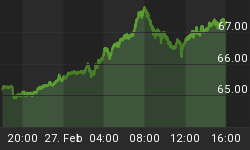Papandreou Offers to Resign With Strings Attached
The crisis in Greece took another step forward today as opposition leader have asked Greek Prime Minister George Papandreou to step down.
In response, Papandreou offered to resign. Unfortunately, Papandreou placed strings on the offer.
Please consider Greek Prime Minister Papandreou said to be told by opposition to step down
Greek Prime Minister George Papandreou's options narrowed as the opposition told him to resign, allies turned against him and police deployed tear gas to break up anti-government protests.
Papandreou, struggling to push through austerity measures demanded by international lenders, was told to step aside and let the president name a so-called technical government to renegotiate the terms of the nation's rescue package, said an official in the opposition New Democracy Party.
The political turmoil came as European Union talks on forging a new bailout to prevent the first euro-area default stalled. The impasse over the aid formula and speculation of an impending government shakeup sent Greek bonds plunging and the euro weakening today.
"When a government has so profoundly misjudged the anger, frustration and disillusionment in the population it is a matter of time until changes have to set in," Jens Bastian, a visiting economist at St. Antony's College, Oxford University in England, said in an interview. "But before a prime minister resigns, he first looks at his cabinet and considers a reshuffle."
Papandreou Offers to Resign With Strings Attached
Bloomberg reports Papandreou Offers to Quit for Unity Cabinet
Greek Prime Minister George Papandreou offered to step aside to permit the formation of a unity government, as long as all opposition parties agreed to cuts required by an international bailout, said a person with direct knowledge of the matter.
Papandreou's bid, coming amid mounting popular protests and defections among his allies, countered a demand by the New Democracy opposition party that he quit and allow a so-called technical government renegotiate the terms of the rescue.
Party Defections Reduce Papandreou's Majority to 4 Votes
Papandreou's majority in parliament is a mere 4-5 votes out of 300. In recent days members of his socialist PASOK party have defected over austerity measures.
Please consider Greeks rage on austerity, aid deal seen delayed
Tens of thousands of angry Greeks massed in front of parliament on Wednesday in a sign of rising opposition to austerity and European officials said a new rescue deal for Athens might be delayed until next month.
Rising risks to the Greek budget plans and signs of deep divisions over the role private creditors should play in a new aid package pushed the euro to a two-week low against the dollar and sent bond yields of peripheral euro states spiraling up.
Doubts about the bloc's ability to solve its debt woes also hit European banking stocks.
Greek banks fell by as much as 7 percent on growing political uncertainty and shares in top French banks tumbled after credit ratings agency Moody's said it might downgrade them because of their exposure to Greece's debt-stricken economy.
Figures from the Bank for International Settlements to end-2010 show the exposure of French banks at 56.7 billion euros and those of German banks at roughly 34 billion euros when sovereign, bank and corporate debt holdings are included.
"Even if you look at the best case scenario, where we get parliamentary approval in Greece and the EU agrees a new aid package, you still have big medium-term issues," said Jacques Cailloux, an economist at RBS in London.
On Tuesday, a member of the prime minister's PASOK party defected over the plans, reducing his majority to 155 in the 300-seat parliament. Another party ally has promised to vote against the austerity.
Markets are overwhelmingly skeptical that Greece can ever repay its debt mountain, which has reached 340 billion euros or 150 percent of the country's annual economic output. Many expect a painful debt restructuring in the years ahead, regardless of what governments agree over the coming weeks.
With a slim and potentially vanishing majority, Papandreou is not in a position to be demanding much of anything. Indeed, his offer to resign with strings attached, increases the likelihood he will be forced out with no strings attached.
Much is happening in Europe today as the crisis escalates.
Emergency Session Fails: ECB Divorced From Reality; What is US Exposure to EU Mess?
Irish Finance Minister Flip-Flop: Yesterday Noonan Vowed to Screw Irish Taxpayers; Today Seeks Haircuts on Senior Irish Bonds; Lessons From Iceland















